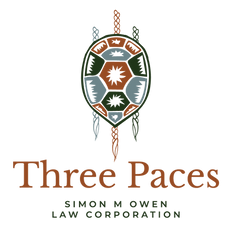
So a man walks into a law office (no, this isn’t really a joke, although a lot of us don’t even have offices anymore). He wants to make a will – a simple enough ask, one for which lawyers typically charge a flat, semi-palatable fee. But he’s got a problem – as a Gitxsan person who wants to follow succession planning under both Indigenous and Canadian law, he needs a service provider with the skills and sensitivities required to understand and uphold both systems. This may include, among other considerations, the Indian Act’s implications for his on-reserve property, Gitxsan laws informing the inheritance of any traditional names and intellectual property he holds, the potential influence of treaties or Aboriginal law jurisprudence, the scope and safeguarding of his Daxgyet (chiefly authority), the requirements of the Indian Estates Regulation (yes it does exist), and the roles and entitlements of his own and his father’s clan relations. Besides all the common law wills stuff. This is not the work of pro forma precedents, and not something most lawyers likely would (or should) take on lightly.
These complexities are not, of course, problems in the sense that they should attract tsk-tsking, inflated fees, or, worse, complete avoidance. They are common enough examples of the realities of inter-societal life and transsystemic law. And they ought not to pose an unduly expensive or insurmountable challenge to the man who has just walked into that office – but they are probably a pretty profound challenge for the lawyer with whom he speaks.
Although we have been living ‘together’ for many generations, our legal (you can add economic, political, social, spiritual…) relations have been decidedly unsettled, if not completely out of balance. Much, if not all, of this turmoil has been borne by Indigenous folks whose laws and legal needs have historically been shut out of, or shut down by, this country’s comfortable conversations and principled shibboleths (see, for example, the “Rule of Law”. And yes I did just want to say shibboleth).
While I’m thrilled to be practicing during this time of apparent recalibration, I sense that the discomfort embodied by that man and that lawyer will grow more audible as we really, finally, tune into what reconciliation demands of us. My profession has so much learning to do, and while I believe that lawyers do have the capacity to become decent service providers in a truly postcolonial, avowedly legally pluralistic society (we mostly chose our jobs, after all, because we love to learn), this is not something we can easily charge through, much less charge for. As deeply uncomfortable as it may be to admit, I am not an expert in Gitxsan (or any Indigenous legal order’s) succession law. Perhaps our real problem, at least for now, is learning who is, and figuring out how best to support that expertise as it becomes recognized and implemented as such in our ‘new’ legal landscape. Go UVic JD/JID… a man waiting in a lawyer's office needs you!

Comments